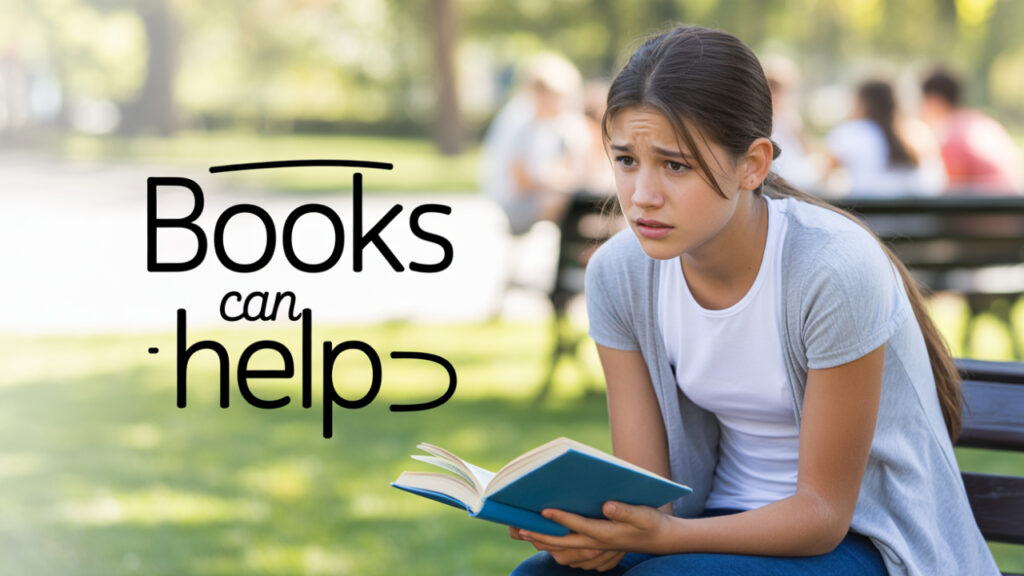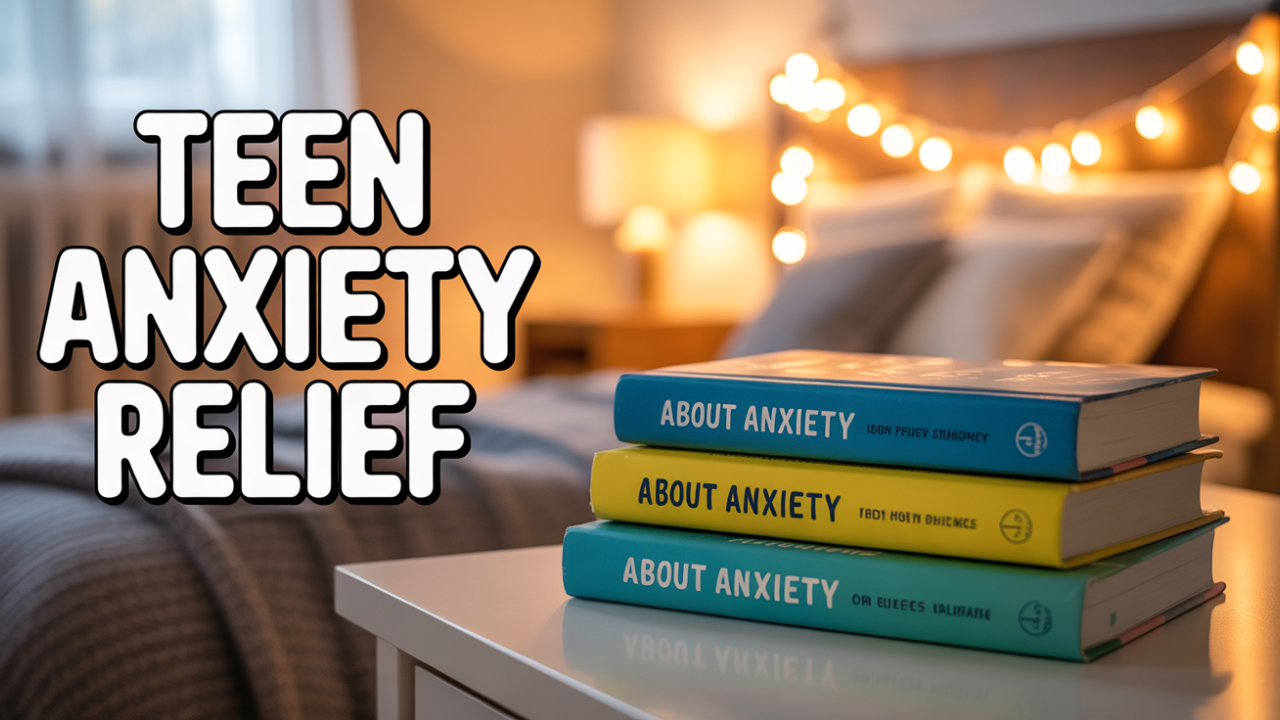Best Books for Teens About Anxiety: Top Recommendations and How They Help
Anxiety affects nearly one in every ten adolescents, disrupting school, friendships, and self-esteem—yet reading the right books can empower teens with insights and coping strategies. In this guide to books for teens about anxiety, you’ll discover expert-selected titles to understand anxiety, practical CBT workbooks, mindfulness manuals, relatable fiction, and parent-focused resources. Each section explains how these books teach coping skills, therapist-recommended approaches, emotional regulation techniques, empathy-building stories, and ways parents can support their teen—plus how self-help reading complements virtual mental health programs at AdolescentMentalHealth.com.
What Are the Best Books for Teens to Understand and Manage Anxiety?
Books for teenagers provide validation, education, and step-by-step tools to face worry and nervousness. By combining real-life examples with evidence-based strategies, these guides foster self-awareness and resilience. For example, The Anxiety Workbook for Teens introduces worksheets that normalize anxious thoughts.
Which books provide effective coping skills for teen anxiety?
Effective coping-skills books deliver interactive exercises and perspective shifts to reduce panic and rumination.
- The Anxiety Workbook for Teens by Lisa M. Schab teaches breathing techniques and thought-record exercises.
- The Worry Workbook for Teens by Muniya S. Khanna offers structured exposure tasks.
- The Shyness and Social Anxiety Workbook for Teens by Gina M. Biegel presents gradual social challenges.
Together, these workbooks empower teens to practice coping skills daily and build confidence, leading into more specialized therapeutic methods.
What are the top therapist-recommended anxiety books for adolescents?
Therapists endorse books that balance psychoeducation with hands-on practice and relatable stories. Commonly recommended titles include:
- Mind Over Mood by Dennis Greenberger & Christine A. Padesky
- Feeling Good by David D. Burns
- The Anxiety Relief Workbook for Teens by Jennifer Shannon
These books integrate cognitive restructuring, behavioral activation, and mindfulness exercises, reflecting techniques used in professional virtual therapy at AdolescentMentalHealth.com.
How do self-help books complement virtual mental health programs?
Self-help guides prepare teens for virtual sessions by introducing core concepts like thought logs and relaxation drills. When paired with adolescent-focused online therapy, these books reinforce session learnings, promote accountability, and extend skill practice between appointments. This synergy accelerates progress and deepens understanding of personalized treatment goals.
Which CBT Workbooks Are Most Helpful for Teens with Anxiety?

CBT workbooks teach teenagers to identify unhelpful thoughts, test beliefs, and develop balanced thinking. These guided exercises build the foundation for lasting anxiety relief.
CBT for Anxiety in Adolescents
Cognitive Behavioral Therapy (CBT) is a well-established method for treating anxiety in adolescents, teaching them to identify and modify negative thought patterns and behaviors. CBT techniques, such as thought records and behavioral experiments, are designed to help teens develop coping skills and manage their anxiety symptoms effectively.
This research supports the article’s discussion of CBT workbooks and their application in helping teens manage anxiety.
What CBT exercises do these workbooks teach teens?
CBT workbooks commonly include:
- Thought Records: Teens track anxious thoughts, evidence for/against them, and balanced alternatives.
- Behavioral Experiments: Teens plan small challenges to test fearful predictions.
- Activity Scheduling: Teens schedule enjoyable and mastery tasks to counter avoidance.
Each exercise develops critical thinking skills that reduce worry by promoting realistic self-appraisals and active problem solving.
How can teens apply CBT skills from these books in daily life?
By using CBT templates at home and school, teens replace “I can’t handle this” with “I’ve managed stress before.” They learn to:
- Pause and label anxious feelings.
- Challenge “all-or-nothing” thoughts before an exam.
- Schedule short breaks with relaxation exercises.
These daily applications reduce anxiety peaks and build emotional resilience, preparing readers for deeper mindfulness practices.
Why are CBT workbooks recommended by mental health professionals?
Mental health experts value CBT workbooks for their evidence-based structure, interactive format, and adaptable pace. Structured modules create clear progress markers, boosting motivation and reinforcing skills between virtual therapy sessions.
How Can Mindfulness Books Support Teens Coping with Anxiety?

Mindfulness and Emotional Regulation
Mindfulness practices, including guided breathing and body scans, have been shown to be effective in reducing anxiety and improving emotional regulation in adolescents. These techniques help teens become more aware of their physical sensations and emotional responses, enabling them to manage stress and anxiety more effectively.
This research supports the article’s discussion of mindfulness techniques and their role in helping teens cope with anxiety.
What mindfulness techniques are commonly featured in teen anxiety books?
Mindfulness manuals often teach:
- Guided Breathing: Deep diaphragmatic inhalations to lower heart rate.
- Body Scan: Progressive attention to muscle tension and release.
- Grounding Imagery: Visualizing safe spaces to interrupt anxious thoughts.
How do mindfulness books help teens develop emotional regulation?
By practicing mindful pauses, teens notice early signs of tension and use anchoring drills—such as five-sense observation—to interrupt stress responses. Over time, this builds tolerance for discomfort and improves self-control.
Which mindfulness books are best suited for anxious teenagers?
Below is a comparison of top mindfulness guides that address teen anxiety through structured attention practices.
| Book Title | Mindfulness Method | Regulation Outcome |
|---|---|---|
| Sitting Still Like a Frog by Eline Snel | Breathing & Visualization | Lowered physiological arousal |
| Peaceful Piggy Meditation by Kerry Lee MacLean | Animated body scans | Heightened body awareness |
| A Handful of Quiet by Thich Nhat Hanh & Plum Village | Fifty simple exercises | Improved emotional balance |
These tailored collections equip adolescents with varied techniques, paving the way for empathetic understanding through fiction narratives.

What Fiction Books Explore Teen Anxiety and Build Empathy?
Fictional stories portray anxiety through characters’ inner experiences, helping readers feel seen and less isolated. Well-crafted narratives validate emotions and model coping in relatable contexts.
How do fictional narratives portray adolescent anxiety experiences?
YA novels often use first-person perspectives to reveal racing thoughts, social fears, and panic moments. Characters describe physical sensations, internal dialogues, and recovery paths, guiding readers to recognize similar feelings in themselves.
Which YA novels are popular for teens dealing with anxiety?
- Turtles All the Way Down by John Green
- All the Bright Places by Jennifer Niven
- My Heart and Other Black Holes by Jasmine Warga
How can fiction help teens feel less alone with anxiety?
By witnessing characters confront fears and seek support, readers learn that anxiety is common and addressable. Fiction builds emotional connection and inspires hope, creating a supportive mindset before or alongside professional intervention.
How Can Parents Use Books to Support Their Anxious Teens?
Parents who understand anxiety can guide their teens toward helpful resources and professional support. Dedicated parent guides demystify symptoms, communication strategies, and next steps.
What are the best books for parents to understand teen anxiety?
Among parent-focused titles, these stand out:
- Helping Your Anxious Teen by Sheila Achar Josephs
- Anxious Kids, Anxious Parents by Reid Wilson & Lynn Lyons
- Walking on Eggshells by Lynn Hellerstein
How can parents use these books to help their teens seek professional help?
Parents can read chapters on identifying red-flag behaviors, practice suggested conversation scripts, and schedule joint review sessions. Open discussions reduce stigma and encourage teens to view therapy as a positive step rather than a punishment.
When should parents consider virtual therapy alongside reading?
If self-help books and at-home strategies do not reduce daily impairment—such as persistent school avoidance or panic attacks—virtual therapy programs offer personalized assessment and tailored coping plans. Early integration of professional support accelerates progress and reinforces reading insights.
Reading these carefully selected books builds foundational skills and emotional understanding that pair seamlessly with AdolescentMentalHealth.com’s adolescent-focused virtual therapy programs. By combining self-help reading, mindfulness practice, and professional guidance, families create a comprehensive support network for teens managing anxiety.









